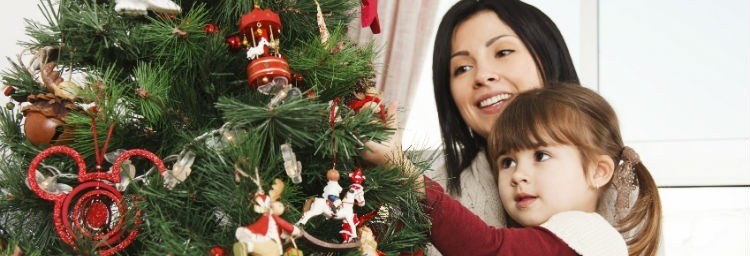For many, Christmas is the most wonderful time of the year. Children and adults have that sparkle in their eyes when they see the Christmas tree decorated for the season. A precursor to the holidays often involves cleaning and decorating, so wondering how a live Christmas tree will affect indoor air quality is valid concern.
3 Ways a Christmas Tree Affects Indoor Air Quality
1. Christmas Trees Induce Allergy Symptoms
Pine trees produce a thick, resinous sap that gives them their distinctive odor. Companies try to mimic it in air fresheners and candles, but nothing quite smells like a real Christmas tree. That odorous resin actually produces a volatile organic compound (VOC) from terpenes. In fact, this resin is part of how turpentine is made. Some family members may be more sensitive to VOCs and might complain of upper respiratory symptoms when near the tree. However, those sensitive to Christmas trees could be reacting to mold or other allergens, too.
2. Real Christmas Trees are Bad for Asthma
That tree outdoors has plenty of air space to disperse anything coming off of it. Indoors, any mold or pollen spores, urine from animals, dirt, microbes and even the chemical messengers that plants emit will be confined to the indoor space. Those with asthma may begin to show the classic symptoms of hayfever or have an asthma attack. If someone in the house has asthma, or if a visiting relative does, it may be better to forego the live tree.
3. Artificial Christmas Trees Produce Odd Odors
Artificial Christmas trees are made out of different materials, including plastics, fabrics, metals and wood. Fire retardant materials may also be sprayed on with paint, snow flocking and other decorative elements. Any of these materials can emit chemicals into the air that can affect indoor air quality. This would be especially true of brand new artificial Christmas trees. New products manufactured using synthetic materials will off-gas different compounds, especially when exposed to heat.
Solution: Whole House HEPA Filtration
HEPA (High-efficiency particulate arrestance) filters trap small particulate matter. Forced air heating and air conditioning systems can have a whole house HEPA filter installed to trap mold, pollen spores and other fine particulates that cause allergic reactions. Though some people may be sensitive to the pine scent, most indoor air quality issues will come from mold and pollen spores.
Ask the Experts at Colman Air About Whole House HEPA and Electrostatic Air Filtration
Experts in indoor air quality, the Colman Air service personnel can design and install whole house air filtration units to not only handle a Christmas tree but other irritating particulates, too.
Christmas is supposed to be a time of beautiful lights and scrumptious holiday smells, from pumpkin pie to cinnamon pastries. That pine smell from a live tree is part of fond memories for many. However, the holidays also often bring indoor air quality issues that can make some people ill. Colman Air can keep the air clean of particulates, so you and your family can still enjoy all the lovely holiday aromas without concern.








